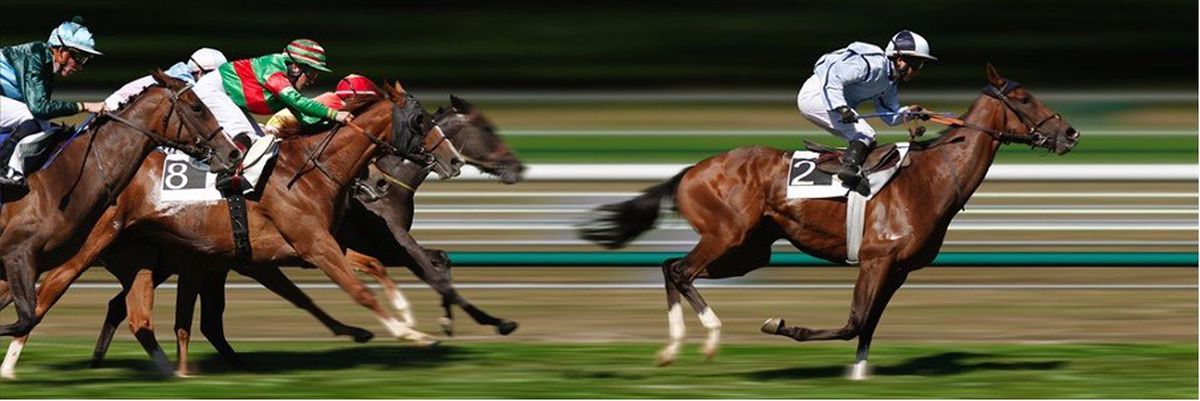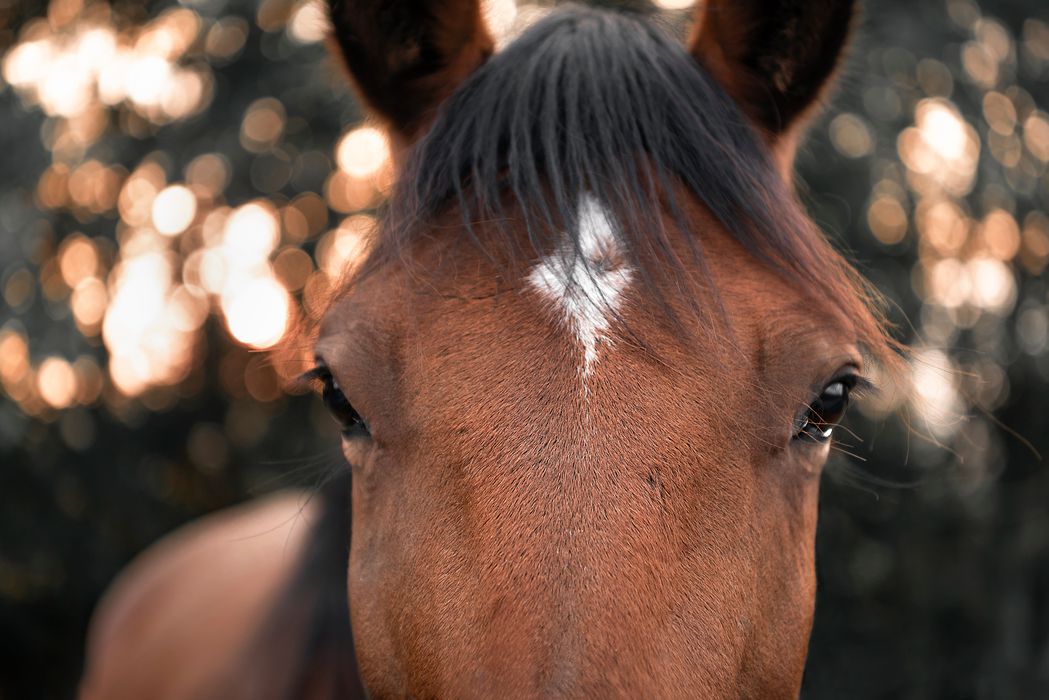Click to jump to a certain part of the page
What is horse racing?
Horse racing is an equestrian ‘sport’, which typically involves two or more horses ridden by jockeys over a set distance, for competition.
Is horse racing cruel?
For many people, including those who don’t normally follow horse racing, watching and betting on events such as Cheltenham and the Grand National, is something that happens each year.
Although hugely popular with the general public, the high number of injuries and fatalities of horses involved has led many to call for this cruel ‘sport’ to be banned. We're standing against horse racing.
The League Against Cruel Sports believe that gruelling races of four miles or more with several fences involved, is too demanding for most horses.
The high number of fatalities on at this type of race, makes it clear that unnecessary suffering is being caused.
According to reports, race-horses are being fatally injured and destroyed at race-courses all over the UK on a regular basis. Many fatalities occur in National Hunt racing (also known as jump racing or steeplechase) which includes the Grand National and Cheltenham Festival.
Hundreds of horses die on the race course every year. Animal Aid keep track of these figures, which you can find on their Race Horse Death Watch website.
These figures do not include horse deaths that occur during training or elective euthanasia.
What is the most common injury in horse racing?
The most common injuries experienced by racing horses are soft tissue injuries other than tendon and ligament damage. Bone traumas are the most common to cause fatalities.
Does horse racing hurt the horses?
In 2018, 202 horses died on British racecourses. There are many different types of injury that horses can experience on the racetrack, ranging from issues with the heart or respiratory system, to lameness and bone injuries.

Does hitting a horse with a crop hurt?
Humans and horses have a similar concentration of nerve endings in the outer layer of skin – where pain is detected – and this outer layer of skin is also of similar thickness.
Therefore, because humans feel pain when hit, it is safe to assume that horses do too. Whilst the skin of a horse is thicker overall compared to human skin, this part of the skin does not insulate them from the pain of being hit with a crop as it lies underneath the nerve endings.
Are horses built for racing?
Thoroughbred horses are bred specifically to take part in horse racing, and whilst these horses are fast, they are prone to injury and health issues.
Additionally, to encourage best performance, the lifestyle of a racehorse is very different to the natural lifestyle of a horse. They are often stabled in isolation and do not follow a natural feeding pattern, for example, which can lead to health issues.
Do horses die at the Grand National and at Cheltenham?
The Grand National (which is just one race among several on the same course at the Aintree Festival) and the Cheltenham Festival, are two of the biggest events in the horse racing calendar.
These events attract very large crowds and significant amounts of money placed in bets, by attendees enjoying the spectacle of horse racing.
However, these races can be particularly dangerous as the prestigious nature of the event can lead to horses being pushed beyond their limits.
In 2019, the death of a horse ‘Up For Review’ at the Grand National and the banning of three jockeys at the Cheltenham Festival resulted in a review of and consultation for both events.
As a result, the Cheltenham Festival introduced in 2020. These include reducing the track length from four miles to just over 3 miles, alongside reducing the number of jumps from 25 to 23.
Furthermore, both the horses and jockeys must meet a set level of experience before participating in the chase.
The League Against Cruel Sports is calling for the abolition of the Aintree Grand National, until and unless it improves its practices to such an extent that animal welfare and not the ‘unique character’ of the race is the priority.
What happens to race horses after racing?
Approximately 7000 horses leave British racing every year. Some are then sent to race abroad, or point-to-point, and others are used for breeding.
According to the Retraining of Racehorses, most go on to pursue other equine disciplines or recreational activities. There is, however, a lack of information and reporting that follows the retirement of racehorses.

What can be done to make horse racing safe?
We believe that horses should only be used in races and events which are within their own capacity and that of their riders.
For example, many races have fences that are too high and courses too long which makes them highly strenuous for most horses.
We acknowledge the improvements that have been made at the Grand National and that the number of deaths during the race itself have been reduced.
However, the figures still show that horses still die at the wider Aintree Festival, as they do at Cheltenham and other courses across the country. One horse death is too many.

The League believe that animal welfare at racing events could be improved by: reducing the number of horses in races; making fences more manageable for tiring horses; shortening the length of the races.
The League also opposes the whipping of horses which has been shown to be ineffective and can cause painful welts. The use of the whip urges the horse to perform beyond its normal capabilities and can result in injuries and stress.
The racing industry is currently responsible for race horse welfare – but the number of on-course fatalities is still around 200 a year, and horses continue to be abused with the whip.
The League is calling for the establishment of a new, independent organisation with sole responsibility for race-horse welfare.
How can I help end horse racing?
Become a voice for race-horses by contacting your MP and asking them to urgently discuss horse safety with the race organisers.
Make your voice heard. It's time to end horse racing deaths.
